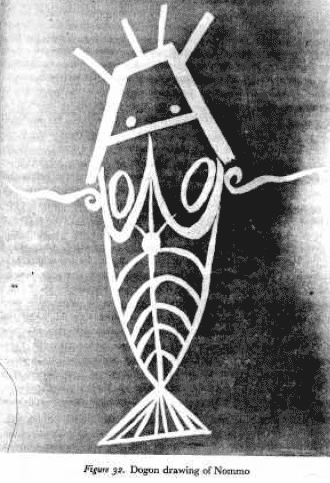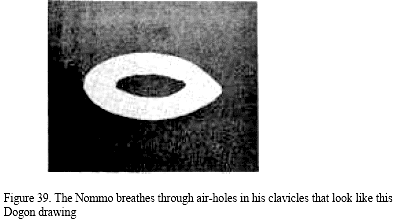Let us visit the planet of the
amphibians.
What are Sirius and Sirius B like as suns?
We know that they revolve
around a common centre, which is in fact equivalent to Sirius B
revolving around Sirius A in an elliptical orbit.
Sirius A, a big, bright star, has two
and a half times the mass of our sun. Sirius B has ninety-five per
cent of the mass of our sun, but because it is made of degenerate
matter and is so tiny, this is not obvious.
If Sirius B with its
mass were not a white dwarf, we could easily see it from earth as a
star of magnitude 2, though the problem of parallax would make it
difficult to separate it from Sirius A.
In any case, if Sirius B
were on its own somewhere at its distance from earth, and were not a
white dwarf, it would be one of the brightest stars in the sky.
In reality, Sirius A is ten thousand times brighter than Sirius B.
The luminosity of Sirius A is thirty-five and a half times the
luminosity of our sun. That makes it a pretty hot number. We can be
certain that our planet is not too near it. The 'habitable zone'
discussed in
Chapter One is much farther out from Sirius than it is
from our sun.
As for the actual size of Sirius A, its
radius is a little more than one and a half times the sun's radius.
This means that Sirius will be smaller in the sky than our own sun,
seen from the planet. It will be a good deal smaller, but will need
to have roughly the same amount of heat, which is not too difficult,
considering how terribly hot and bright it is.
To us it would be a
strange experience to see such a small body in the sky giving out so
much heat and light. Looking directly at it would probably be as
injurious as staring into an arc lamp.

All the more reason to be
under water,
and not so tempted.
Our planet will probably be quite hot. In fact, it will probably
even be covered with a vaporous layer of cloud at most or all times.
It might look something like Venus from a distance, though of course
Venus does not have temperatures or clouds of the sort which living
creatures are likely to find agreeable.
It would seem important to
keep cool on this probably rather hot and steamy planet.
Therefore intelligent life is likely to
have evolved as amphibious and never have taken to the land. These
amphibians might easily inhabit the surface of the water, of course,
for they would need to breathe atmosphere and would not have gills
like fish - they would probably need to be mammals of some kind in
order to develop the brain sizes and other characteristics necessary
for intelligence.
They would probably spend a lot of time
hanging about marshes and might have developed an indigenous way of
life originally which involved the use of woven reeds for huts and
transport, and so on. (They would long ago have got past that stage,
of course.)
But perhaps their first style of life,
to which they may even look back with some nostalgia as 'the good
old days of simplicity and a carefree existence', was something like
that described by Wilfred Thesiger in his book
The Marsh
Arabs in which the inhabitants of southern Iraq are pictured
in the marshes of the lower Tigris and Euphrates (quite near where
Oannes and his friends are said to have spent most of the time, one
is tempted to note!).
If you were one of these creatures, you would be a good deal like a
dolphin with arms and hands.
You would, due to your amphibian
nature, have a separate blowhole for breathing in addition to your
mouth. You would be able to hold your breath for long periods, and
when you did breathe through your blowhole, it would be a gasp and
make a bit of noise.
Your blowhole would open and close almost
instantaneously and your breathing would tend to be infrequent but
loud and quick. The blowhole might be placed in such a way that it
consisted of one or of two small slits, long and thin, just beneath
your clavicles (collarbones).
In fact,
the Dogon have a tradition
that their Nommos breathed through their clavicles.

You could not go about bare-skinned in any atmosphere for long.
You
would require moisture on your skin after a few hours at the most;
when your skin dried you would be in absolute agony - worse than a
human with sunburn.
Because you would frequent the surface of the
water a great deal, there would inevitably be a considerable
contrast between the top half of your body and the bottom half.
The tradition known to us of the
mermaid
expresses this state of affairs quite well. Your lower extremities
would be quite fish-like, but you would have articulate limbs and
fingers on your upper half and your skin would be more capable of
resisting solar radiations and hence would be more like that of a
land mammal.
Probably cartilaginous structures would
have evolved in your head to rigidify your features beyond the
simple streamlined form required for a strictly undersea life, and
there would be something on your upper body resembling hair -
perhaps like the hair of our own walruses.
Your teeth would probably be feeble compared with those of ferocious
carnivores such as sharks. You would probably have evolved from more
peaceful creatures capable of feeding on small fish in considerable
numbers. Your ancestors would have run in packs as the dolphins do
and you would be extremely sociable because you evolved in schools
(packs).
Nudity is probably the natural state of your species.
Overpopulation is not one of your
problems because most of your planet is water and all of the water
is habitable. Even on the planet Earth, it is estimated that
dolphins outnumber human beings two-to-one, and the oceans are
hardly overcrowded.
As one of these creatures, you might find human beings repulsive,
for many reasons. Their rough hair, dry skins, bony limbs, and
particularly their pungent smells might disturb you greatly. Their
sweat is not continually washed away in the way that your skin is
continually cleansed by the watery medium which you inhabit.
And as an amphibian you have exceedingly
well developed senses of smell and taste. You 'taste' smells or
spoor-substances underwater at enormous distances and though your
sense of smell is not quite as acute, it is competent enough. Unlike
yourself, human beings tend to have areas in or near their dwellings
which smell of their excrement and urine - places to which they
habitually return to perform these functions.
As an amphibian whose waste products
dissipate in the water, you find such an idea revolting. How can
human beings stand going back to those same odors day after day?
One of the most disturbing sights to you is to watch human beings
walking.
When humans stand still with their legs together, they look almost
normal. But then suddenly they 'split' into two and begin walking,
which makes you slightly dizzy and upsets you. It makes you feel
nervous with the thought of how dreadful it would be for you if you
'split' and thereby became a cripple in the water.
You admire the
agility of the humans on dry land.
They can climb trees and cliffs, all of
which is terribly impressive. They can go at a great speed on land
with what they call 'running', they even have a certain capacity to
jump over obstacles; they are not as swift on land as you are in
water, but they do passably well. You do have difficulty in seeing
them sometimes because, as you are in a watery environment, your
vision is not good at long range.
And the humans, being dry, do not stand
out against their background as much as you could wish. When they
move you can instantly detect motion without optical definition, but
a stationary human who is even approximately camouflaged and blends
with this background is impossible for you to differentiate with
your unaided eye. You rely on your sense of smell, like a
rhinoceros.
But when the wind is against you, you
have no hope. A human can easily elude your perception on dry land
if he knows what he is doing and you do not have your goggles or
technical aids with you.
You would have an extremely agile mathematical mind. Your ancestors
developed from the primitive state by computing the intricate
astronomical phenomena and radiations falling on your planet without
benefit of direct optical observations.
The brains of your species
were thus engendered to conceive and solve vast intricate
abstractions. Your powers of holding complicated mathematical
structures suspended in your mind's eye while performing
mathematical operations on them is extraordinary.
You have a phenomenal conceptual and
generalizing faculty. It is easy for you to conceive of invisible,
and even imperceptible, forces, because your daily environment is a
suggestive, allusive one. You taste and smell your ambience rather
than see it. Your powers of telepathy may be extremely highly
evolved - possibly a characteristic of your species from their
earliest history.
The climate range of your planet is greater even than the Earth's
because there are no ice caps, due to there being more radiation
from the two or three stars in your multi-solar system. Your oceans
are all the more extensive, therefore, for not being locked up in
ice caps at the poles.
Space flight is less uncomfortable for you than for humans, as the
state of weightlessness is often approximated under water (indeed,
on Earth the astronauts train under water). Your blood circulation
is thus better suited to the weightless condition than is the case
with humans and you do not at all mind living in the gigantic water
tanks orbiting your planet which constitute your many satellite
space cities.
It is not as difficult to simulate a watery
environment in space as it is to simulate a dry land environment.
Your wants are few, your existence simple. You do not eat cooked
food and you do not have stoves to keep warm.
Farming for you is
mostly the breeding of delicious small fish, and meals are an
adventure as you love a good chase and the satisfaction of catching
your food.
Dinner is a family sport.
The amphibians must have a name, and
the Dogon name for them of 'the
Monitors' may be the best to consider using. 'Monitor' is more
specific than 'Instructor', and 'Masters of the Water' is too long.
There is no point using the euphemism the 'Annedoti', knowing that
it means the 'Repulsive Ones'.
A more generic and neutral term, I
suppose, would be simply the 'Sirians'.
If we ever come into contact
with them again, they will probably be called the 'Sirians'
officially, and their civilization will be the 'Sirian
civilization'.